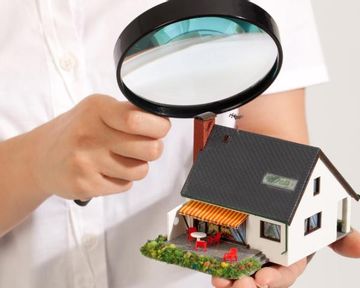Be careful of ownership bias when selling your home
Selling a home is a significant financial move, often carrying deep emotional weight. Beyond the financial calculations and market considerations, the emotional attachment we form with our homes can create a barrier to a smooth and profitable sale. This emotional attachment can sometimes lead to what is known as "ownership bias" — a psychological phenomenon that can hinder the selling process and potentially reduce your chances of achieving a timely sale at full market value.
It is a common psychological effect where individuals tend to overvalue things merely because they own them. This bias can lead homeowners to overestimate their home's worth, making them reluctant to price it competitively or accept reasonable offers. This can make it challenging for them to find a willing buyer and conclude a successful sale.
Recognizing this bias is the first step toward overcoming it. Many homeowners may believe they are objective when selling their homes, but no one is immune to ownership bias. Imagine you recently renovated your kitchen, installing beautiful new marble countertops. You may see this as a massive value boost, but potential buyers in your area might not share your enthusiasm for this upgrade. This disconnect can lead you to believe that your home is worth more than what buyers are willing to pay.
This misjudgment is a common result of ownership bias. Homeowners often feel that their home, with all its personal touches and sentimental value, is more valuable than comparable homes in the same neighborhood. After all, if you love your home, why wouldn't potential buyers feel the same way?
The reality, however, is different. An overpriced home will likely remain on the market for an extended period, becoming a "stagnant listing." Buyers may assume that a property sitting unsold for too long has some hidden issues, which can lead to a loss of interest. In many cases, the homeowner may be forced to reduce the price several times, further damaging the property's perceived value.
Ownership bias can manifest in various ways. Perhaps you’ve invested in unique upgrades or personalized renovations that hold sentimental value but do not align with the tastes or preferences of the average buyer in your area. For example, a quirky color scheme in your living room or a custom-built outdoor feature might be exciting to you but could be seen as a potential headache or additional expense for a buyer. These emotional attachments can cause you to inflate your home’s perceived worth and, as a result, price it above what the market can bear.
How to overcome ownership bias
The key to counteracting ownership bias is to rely on the objective perspective of a professional real estate agent. By leaning on the advice of an objective third party, like a real estate professional, homeowners are able to guard against their ownership bias. Real estate agents are familiar with market trends, buyer preferences, and realistic pricing strategies. They offer an impartial perspective on your home’s true market value, taking into account factors that you, as an emotionally invested homeowner, might overlook.
An experienced agent will recommend a market-based pricing strategy that balances your desire for a profitable sale with the realities of what buyers are prepared to pay. Their expertise extends beyond pricing, as they can offer valuable staging tips and marketing strategies to make your home as appealing as possible to potential buyers. Remember, real estate agents work to help you sell your home at the best price in the shortest amount of time, and their recommendations are grounded in market realities, not personal feelings.
Another important aspect of overcoming ownership bias is adopting a buyer's perspective. While you may have fond memories of your home, potential buyers are looking at it through a different lens. They are evaluating your property based on its features, location, condition, and how well it aligns with their needs and desires. To them, your house is just one of many options on the market, and they are seeking a home that meets their practical and emotional needs, not yours.
By putting yourself in the buyer’s shoes, you can gain a better understanding of what makes your home desirable and what might be holding it back. If, for instance, buyers in your area value modern, minimalistic spaces, then your tastefully decorated, eclectic living room might not appeal to them in the way it does to you. Realizing this can help you make more objective decisions about staging and pricing.
Selling a home can be an emotional process, but it is essential to separate your personal feelings from the financial realities of the sale. One practical way to do this is to depersonalize your home before listing it. Remove family photos, personal mementos, and any overly unique or customized décor that might not appeal to the average buyer. This will allow potential buyers to envision themselves living in the space, rather than feeling like they are intruding on someone else’s life.
Ownership bias is a natural, but potentially costly, pitfall when selling a home. The combination of emotional attachment and the personal value you place on your home can cloud your judgment and lead to overpricing or a reluctance to make necessary changes that could appeal to buyers. By being aware of this bias, trusting professional advice, and adopting a buyer’s perspective, you can navigate the emotional landscape of selling your home more effectively.

